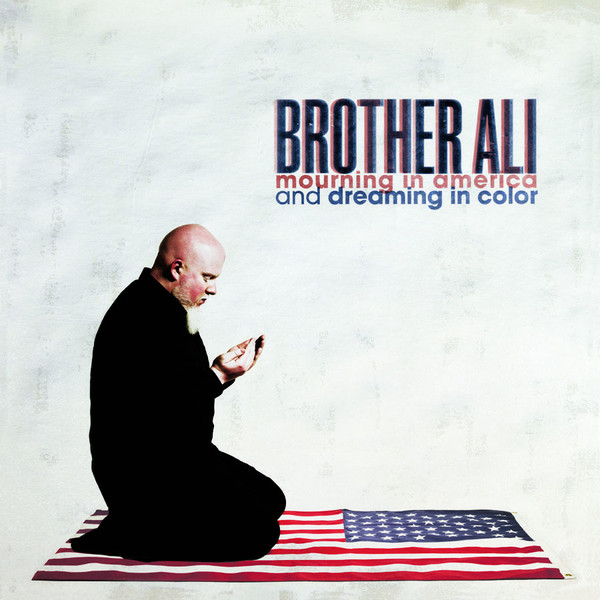Music
REVIEW: Brother Ali - Mourning in America and Dreaming in Color

Music, just like food and relationships, has to combine both aspects of “want” and “need” to be effective. For a musical product or project to be successful, it has to provoke the listener into wanting to hear it and needing to hear it. If it is something the world needs, but the world doesn’t want to listen to it, then no one will pay attention. If it is catchy and easily digestible, then people would want to hear it. However, the music will be disposable, since there is not a need for it to stay around long term.
Political hip-hop has died. Anyone still listen to the Coup? Anyone listen to Public Enemy on a regular basis, and not for five to ten minutes of nostalgia? Underground lyric based hip-hop has found a mostly college/hipster audience – and much of it is soulless. The most political hip-hop I listen to recently has been a few lines in Kanye West’s songs. Yeezy will fit in a few short diatribes on race or politics in the midst of either living out his id or celebrating his success, even with a tinge of a cynical eye.
So, where does Brother Ali’s Mourning in America and Dreaming in Color fit in all this? Maybe, it would have fitted in better when Common and Mos Def were hungry emcees, and not multimillionaire movie stars (not that I am hating on Com and Mos, I deeply respect their career arcs). The aforementioned sentence was just to document a period in time.
There is no denying that Brother Ali has skills. The Minneapolis MC's storytelling and lyrical prowess are amongst the best in the game. The production by Jake One veers the lines of soulful Black Star or early Kanye West era, and pure backpacker hip-hop. The latter sound gives Mourning in America and Dreaming in Color a hard raw edge, and it will probably scare off any listener who is not a die hard independent hip-hop head.
The album starts on a political charged and honest note with “Letter to My Countrymen.” The song deals with America's social and political shortcomings, but Brother Ali is still positive on the track, wanting to make the best out of the situation. However, the best moments on the album are when Jake One takes the soulful production route and Brother Ali steps away from political ideology, and tells stories about his life, or discuss relatable everyday situations.
The production on “Stop the Press” sounds like an underground version of early Kanye, think College Dropout era. Brother Ali moved flawlessly from beginning to end with an update from his life: family issues, revolving DJs, touring, and career woes. It is the most charismatic, and to me, the best moment on the album. “Work Everyday” keeps the listener’s attention with soulful production and stories about failed health care and the endless no-win rat race that will still leave most workers broke or barely breaking even by the end of their lives. "Only Life I Know" documents every living for most Americans from the city to the suburbs.
[youtube]http://www.youtube.com/watch?v=9HwATJMeOYU[/youtube]
I love the lyrical content of “Won More Hit,” which deals with how racists still like Black music, but not necessary the people who make it. The song’s content and substance is profound, but the beats with its bland keys are not memorable. “Say Amen,”with its blaring guitars and angry raps, is made for his audience of hard core underground hip-hop heads, but it doesn’t come close to my favorite song containing the word “Amen.” It is pure hip-hop, but how much is pure hip-hop substantial or listenable in these modern times.
Mourning in America and Dreaming in Color ends strongly with tracks that just has enough politics, but blends personal experiences and reflective moments with production that is not necessary pure underground, but moves with grace and subtle smoothness. “Namesake” blends politics and Brother Ali at his best: discussing his personal experiences. “All You Need,” which discusses his son, Faheem, and issues with his son’s mother, shows off Ali’s storytelling abilities. “Singing This Song” blends a choir and soulful hip-hop with Brother Ali’s thoughtful lyrics, but still containing that hard hip-hop edge – is a great example of a joyous hip-hop track.
Even for non-underground hip-hop heads, Mourning in America and Dreaming in Color contains soulful, urgent, and essential tracks that are definitely worth a listen. Brother Ali’s Mourning in America and Dreaming in Color may not be what the general music audience or public wants as a whole, but it is what we need, even if it is at times hard to digest.




